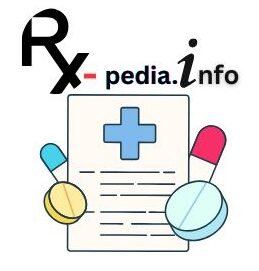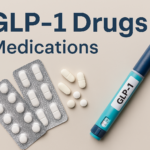
Table of Contents
Medication non-adherence in schizophrenia is a major concern, with studies showing that about 50% to 75% of individuals do not consistently take their prescribed medications. This leads to worsening symptoms, increased hospitalizations, and a decline in overall quality of life. The challenges of medication adherence are significant, including side effects, stigma, and cognitive difficulties. This article aims to provide practical strategies to improve medication adherence for those living with schizophrenia.
Understanding the Barriers to Medication Adherence
Cognitive Impairment
Cognitive deficits are common in schizophrenia, affecting about 70% of those diagnosed. These deficits can make it hard for individuals to remember their medication schedules. Cognitive remediation therapies can help. These therapies focus on improving memory and attention, making it easier to stick to a treatment plan.
Side Effects
Antipsychotic medications often come with side effects like weight gain, drowsiness, and restlessness. These side effects can discourage patients from continuing their treatment. To mitigate these issues, patients can:
- Work closely with their psychiatrist to adjust dosages or switch medications.
- Explore options such as lifestyle changes to counteract specific side effects, like exercise for managing weight.
Stigma and Mental Health Literacy
Stigma around mental illness can prevent people from seeking help or adhering to treatment. Low mental health literacy can also act as a barrier. Patients can combat stigma by:
- Educating themselves and others about schizophrenia.
- Engaging in open conversations about their condition to normalize it.
Building a Strong Therapeutic Alliance with Your Healthcare Team
Importance of the Doctor-Patient Relationship
A trusting relationship with healthcare providers encourages open communication. Patients who feel heard are more likely to adhere to their medication plans.
Active Participation in Treatment Planning
Patients should ask questions about their medications, such as:
- What are the expected benefits?
- What side effects should I watch for?
- How do we monitor my progress?
This active involvement promotes a sense of ownership over their treatment.
Utilizing Support Systems
Family members and caregivers can play a significant role. They can remind patients to take their medications or attend appointments, providing additional layers of support.
Practical Strategies for Enhancing Medication Adherence
Medication Management Techniques
Managing medication can be easier with:
- Pill organizers that separate doses.
- Smartphone apps that send reminders.
- Setting alarms to create routine.
Addressing Relapse Prevention
Early warning signs of relapse can include increased agitation or withdrawal. Utilizing proactive strategies such as:
- Keeping a mood diary.
- Regular check-ins with a healthcare provider can help catch these signs early.
Lifestyle Modifications
Healthy lifestyle choices can support medication efficacy. Encourage:
- Regular exercise, which can improve mood.
- A balanced diet rich in nutrients.
- Sufficient sleep to enhance overall wellness.
Leveraging Technology and Support Systems
Medication Reminder Apps
Smartphone apps have shown to increase adherence rates. A study noted that users of these apps were 30% more likely to stick to their medication schedules compared to those who did not use them.
Support Groups and Peer Support
Connecting with others facing similar challenges can provide understanding and encouragement. Both online and in-person support groups are available, making it easier to find a community.
Telehealth Services
Telehealth has made accessing mental health support more convenient. Virtual appointments reduce barriers like transportation and waiting times, allowing consistent follow-up on medication management.
Long-Term Strategies for Sustained Medication Adherence
Regular Monitoring and Adjustments
Regular check-ups are crucial for ensuring medication remains effective. This allows for timely adjustments to dosage or switching of medications if needed.
Developing Coping Mechanisms
Stress and anxiety can lead to non-adherence. Strategies to manage these feelings include:
- Deep breathing exercises.
- Mindfulness or meditation practices.
- Seeking support from therapists or counselors.
Focus on Self-Efficacy and Empowerment
Encouraging a sense of control helps individuals feel more engaged in their recovery. Patients should be encouraged to set personal goals and celebrate small victories.
Conclusion: A Collaborative Approach to Improved Outcomes
Improving medication adherence in schizophrenia involves multiple strategies, including building strong relationships with healthcare providers, embracing technology, and employing practical management techniques. The importance of a supportive environment cannot be understated. When patients actively participate in their treatment and are empowered to take control of their care, the likelihood of improved outcomes increases significantly. Emphasizing collaboration can lead to a brighter future for individuals living with schizophrenia.
FAQs:
Why is medication adherence so important for people with schizophrenia?
Medication adherence is crucial for people with schizophrenia because it helps to:
Manage symptoms: Regular medication use can help control symptoms like hallucinations, delusions, and disorganized thinking.
Reduce the risk of relapse: Consistent medication use can lower the chances of experiencing a relapse, which can lead to hospitalization and other negative consequences.
Improve overall quality of life: Adherence to medication can help individuals with schizophrenia live more fulfilling lives, maintain relationships, and participate in work or school.
What are some common barriers to medication adherence in schizophrenia?
Several factors can hinder medication adherence in people with schizophrenia, including:
Side effects: Unpleasant side effects can discourage people from taking their medication as prescribed.
Stigma: Fear of stigma and discrimination can lead to non-adherence.
Cognitive impairment: Cognitive difficulties, such as memory problems, can make it challenging to remember to take medication.
Lack of insight: Some individuals with schizophrenia may not recognize the need for medication or may deny their illness.
Are there any apps or tools to help with medication adherence?
Yes, there are several apps and tools available to assist with medication adherence. These tools can help you:
Set reminders
Track medication intake
Provide educational information
Connect with other people living with schizophrenia











1 thought on “10 Proven Strategies to Improve Medication Adherence in Schizophrenia”